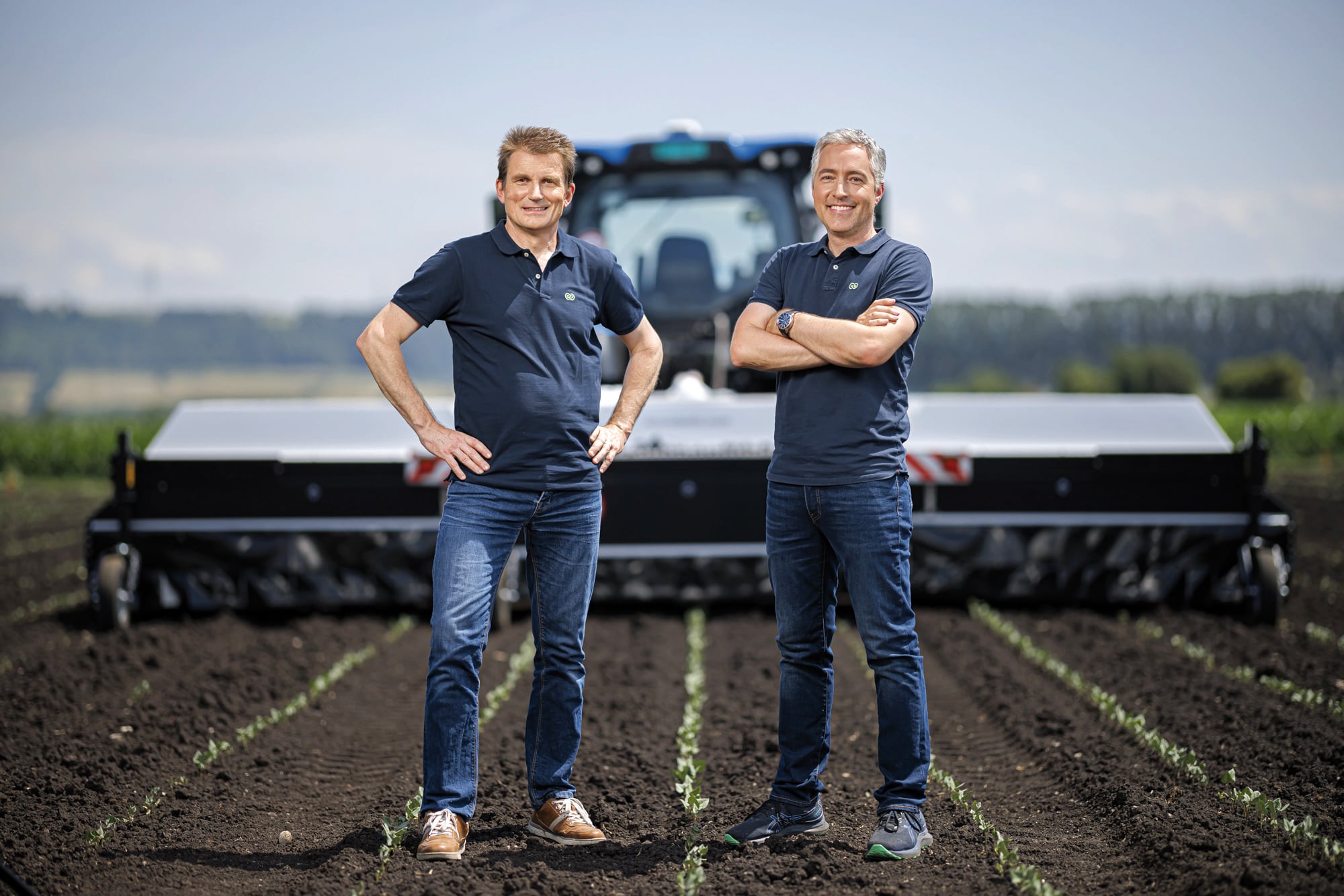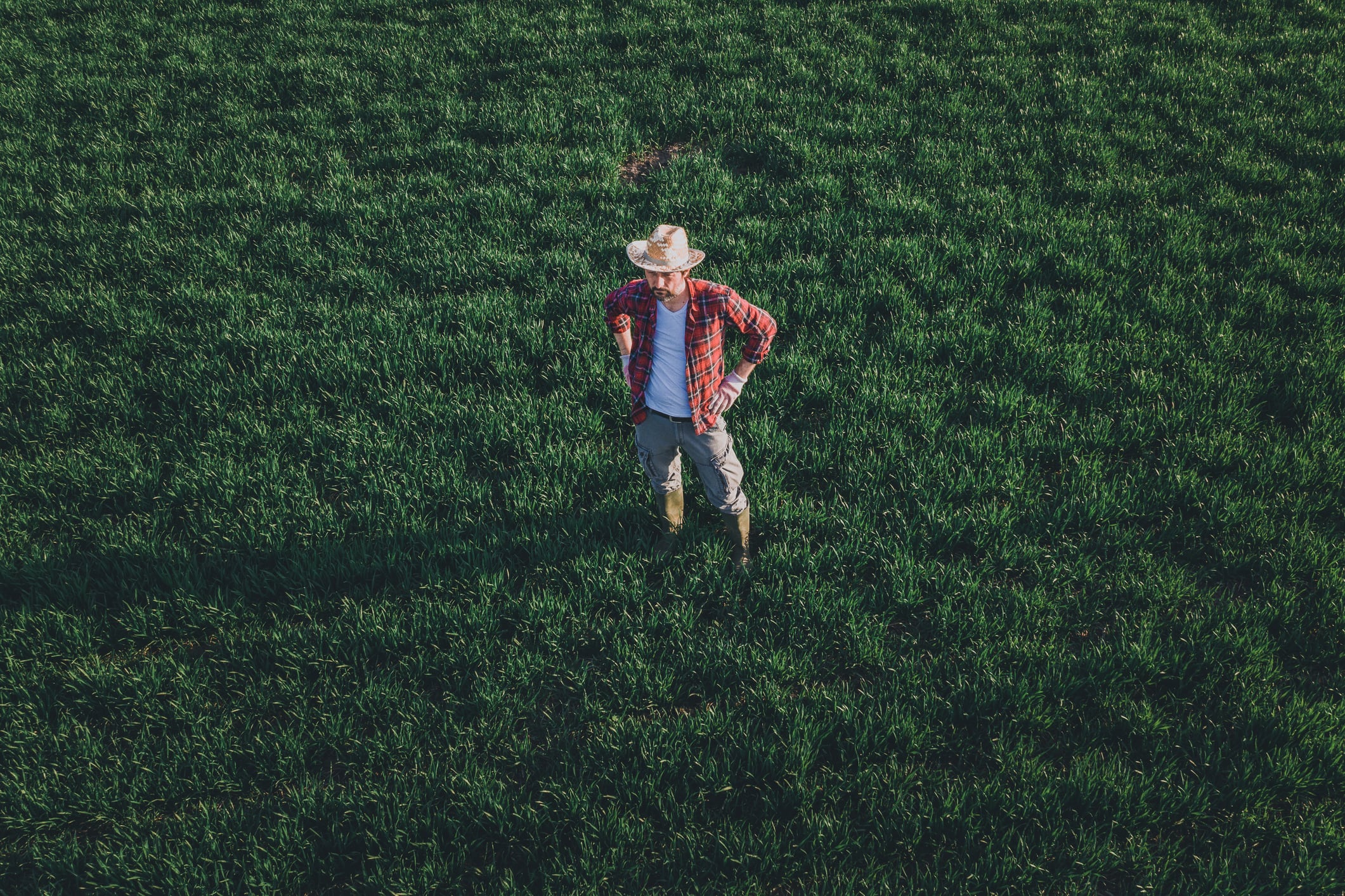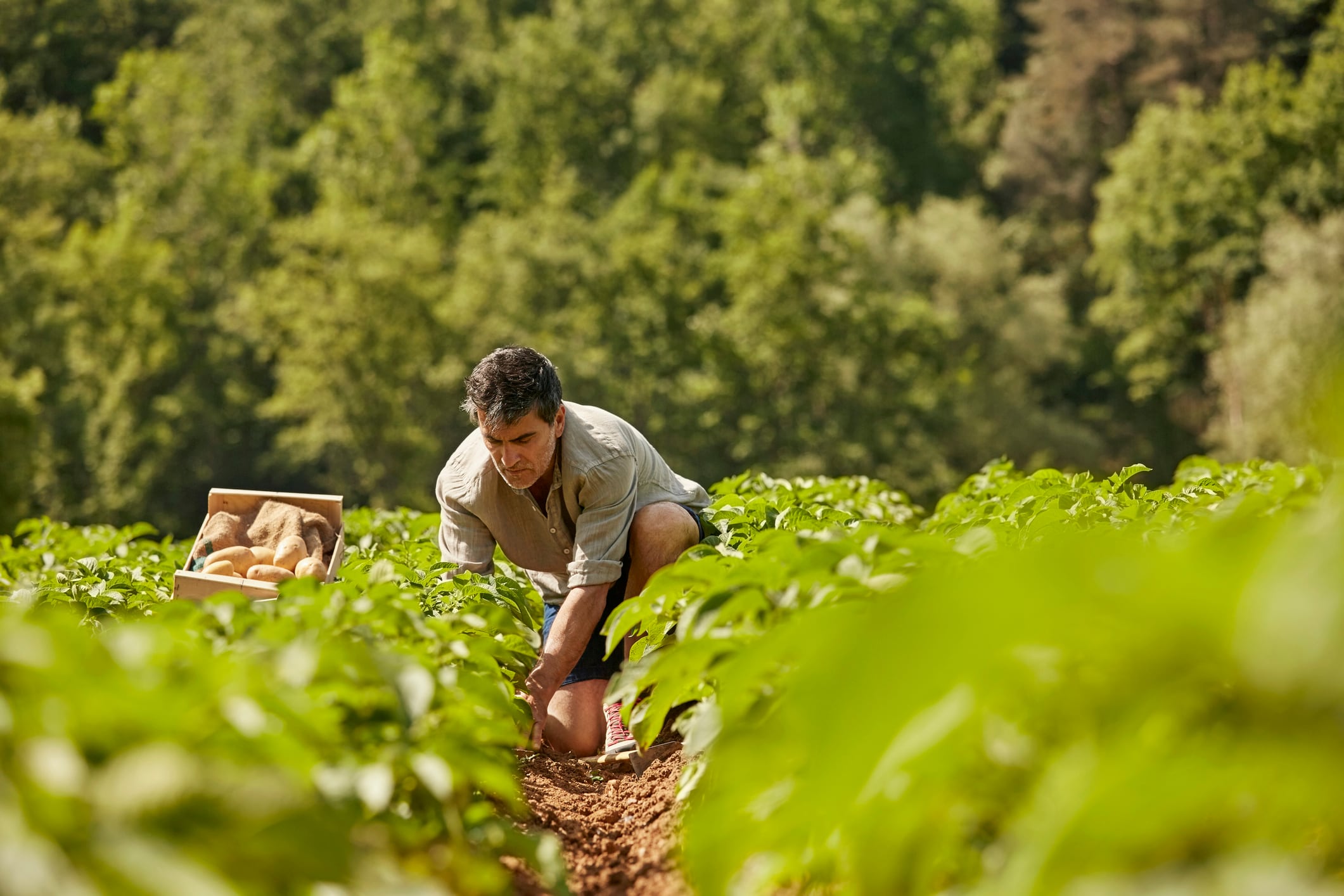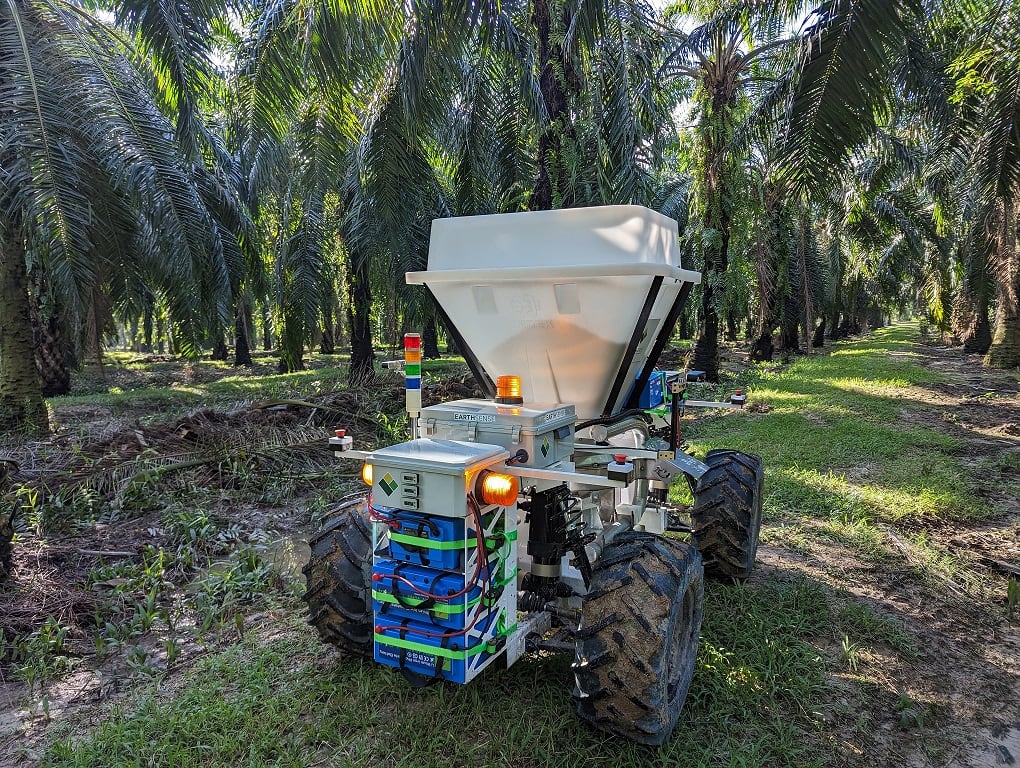As a young man, Steve Tanner was often recruited by his parents to help out on their farm in rural Switzerland, spending many tedious days weeding sugar beet fields by hand.
He left to study engineering but having grown up and witnessed some of the devastating effects of chemicals on agriculture, his mind began to drift back. What if weeding was again done by hand, only this time, a robot did the work?
Tanner teamed up with Aurélien Demaurex, a fellow entrepreneur, and together the pair founder Ecorobotix, evolving the concept of a robotic weeder into an AI-powered precision sprayer. Using ultra-precise technology, Ecorobotix says it can cut chemical use by up to 95%, helping farmers save money while also protecting the environment.
Ecorobotix has recently received investment from BASF and Yara, two of the world‘s biggest agri-chemical companies, and is targeting annual sales of over €500m in the next five years.
ATN sat down with Demaurex to learn more about the company’s plans.
ATN: There are lots of precision farming products out there these days. What makes Ecorobotix unique?
What is unique is our precision. When you farm in western countries, you usually use synthetic chemistry that is selective. That means it kills everything except the crop you want to grow.
We are the only precision company in the world that can use a non-selective herbicide like Roundup, which kill everything they touch. That means we are precise enough that we won’t touch the crop in the case of weeding.
ATN: What is the idea at its heart? Why couldn’t another company come along and make a machine just as precise?
You have to understand that the machine understands what is happening in the field. It sees something and it detects: is it sugar beet? Is it a straw? Is it a stone? Is it the ground? Is it x, y, z weed. You need to train that algorithm over time and that’s the barrier to entry.
ATN: How long did it take you to develop the technology?
We started 10 years ago so it’s been a long journey. We began with sugar beet, but it was not commercially on the market back then.
The product has been on the market since 2021 and since then, we are working in vegetables like carrots, onions, lettuce, all the high value crops.
ATN: Why did it take so long to develop?
It’s really important when you work with AI that you provide the correct data to train the algorithm to recognize correctly. The AI part is key. It’s what most of our engineers are working on.
But on the hardware side, you must have equipment that is precise, so it knows exactly where it needs to act.
ATN: What are the risks of using AI in farming?
A bit like everything that is linked to AI, the question of data is something that comes on the table. We collect a lot of data with our machines. We could have a chemistry company that would be interested to know what geographies have the most weeds and where has more issues with typical chemistry. So there is a risk that bad behaved companies will sell the data to other parties.
We’re clear with our farmers. There is an agreement between us on data. It’s only used to improve the algorithm.
ATN: What do you think are farmers main hesitations about adopting technologies like this?
With AI and with technology in general, you want to see it working before you believe it. So we put a lot of effort into touring, demo-ing our technology to show how it works. And our best promoters are the farmers that bought the machine and are showing to the neighbours.
ATN: Where’s your funding come from?
Historically, it was early-stage tech venture capital, quite close to us in Switzerland. And then over time, we integrated more venture capitalists that are specialised in agriculture. For example, Capagro is one of our investors in France.
We also opened to corporate venture capitalist venture funds. BASF, for example, is a shareholder in our company.
Lately we had investment from Yara, one of the largest fertiliser companies in the world. We want to brainstorm together to develop a fertiliser product. Today, farmers are buying our machines for weeding, but fertilising is coming.
ATN: Are you not the enemy of fertiliser companies? You could cost them a lot of money.
Absolutely. Pesticide companies, fertiliser companies, of course, we are taking part of their business, that’s for sure. But they are not stupid. They see that the way of doing things is no longer sustainable. They are smart enough to see that even if it’s disrupting their business model, there are opportunities too.
For example, you can imagine a company like BASF, Syngenta perhaps, instead of just selling chemistry, they will develop chemistry that is more suitable for our technology.
You can go even further and have a contract where the chemistry company says: ‘we will take care of your field. It will be healthy. It will have a good return.’ So even for them, it’s blurred, and it’s not clear how it will involve.
ATN: You might want different chemistry for these machines?
Yes. We are using exactly the same chemistry now, but you could imagine that instead of having a chemistry designed to kill everything but the crop, you could have a chemistry that is extremely aggressive but has a lifespan that has a few seconds with the sun or with the oxygen.
So you apply it just where it’s needed, and in a few seconds or few minutes, everything is gone. It open doors to the development of potentially new chemistry. That’s the beauty of this precision.
ATN: How are you doing commercially?
Last year we multiplied sales by nearly three times on the previous year, and this year we will again more than double sales. We have hundreds of machines in the field. Our goal in the in the next five years is to reach €500m in annual sales. We are on that pace.
ATN: How much does a machine cost?
It depends on the market, but we have a hybrid model where farmers buy the machine up front for about €200k. And then for each algorithm for each crop they want to use, there is an annual fee of around €5k.
ATN: Has it made a difference being in Switzerland rather than say, the UK or France or Germany?
I really think so. What we have in Switzerland is an ecosystem a bit like Silicon Valley or Israel with quality around public research, AI, things like that. What really differentiators us is precision - robotics and watchmaking.
The other part is chemistry. Switzerland is the country of chemistry. We have the two big pharma companies, Roche and Novartis. You have Syngenta, and few kilometres away, you have Bayer and BASF.
What is lacking in the ecosystem is more funding.
HH: Why’s that?
Switzerland is the country of banks and insurances. By nature, these guys, especially insurers, are quite risk adverse. And I my guess is it’s a bit cultural in a way. I think in our culture, in Switzerland, we need to take more risks, and perhaps it’s due to that.
HH: Why does it matter if you don’t have local funding, when you can go to other countries?
In Europe, we create great companies and then they are bought by American ones and they move to the United States. So you lose what you created.
Have a look at the Silicon Valley and you see why it matter. When you create the full ecosystem, you rule the world.




